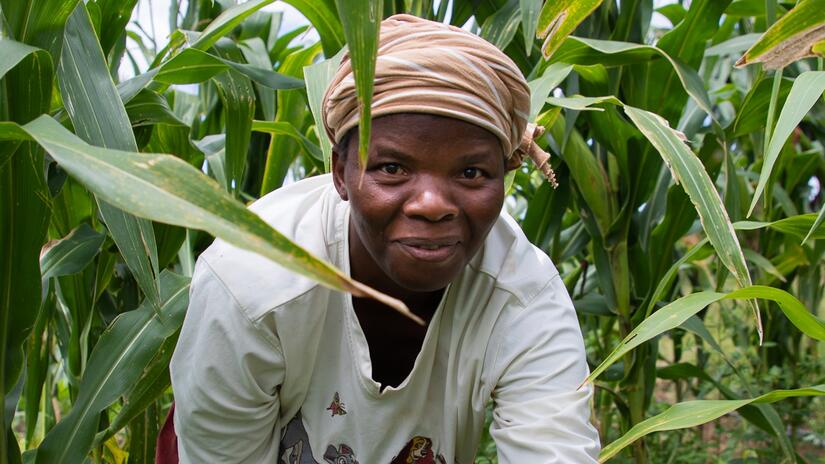Green response
Climate and environmental crises threaten the survival of humanity now and in the future. We must do our part to ensure that our humanitarian response and recovery operations do not cause harm to local environments, and to minimize the contribution we make to further climate change.
What is green response?
Green response is all about improving the environmental sustainability of our work and avoiding, minimizing and managing the damage we cause to the environment and climate.
It requires us to consider environmental risks, the environmental impacts of a crisis and the potential environmental impacts of our humanitarian action. We must integrate these risks and potential impacts into every stage of our work: in preparedness activities, needs assessments, project design and delivery, and monitoring and evaluation.
We have committed to improving the environmental sustainability of our work through our Environment Policy and through the Climate and Environment Charter for Humanitarian Organizations.
Why adopt a green response approach?
Protect the environment
Minimize disaster risk and support recovery
Value for money
What types of practical green response actions are we taking?

A woman tends to a communal garden in Sigwe, southern Eswatini.
Photo: Finnish Red Cross/Eija Palosuo
- We are improving the sustainability of our supply chain for relief items by reducing packaging, eliminating single use plastics, purchasing materials with a lower carbon footprint, and promoting local procurement
- We are increasingly using renewable energy, such as solar power, in our projects and emergency operations
- We are improving waste management in our operations and in our field offices
- We are promoting solutions to waste management in camps and communities which have positive outcomes, such as creating livelihoods opportunities
- We are using local sustainable construction materials for shelter and water, sanitation and hygiene (WASH) projects, including reusing debris wherever possible
More information and advice
Environmental Quick Guide
Practical advice on how National Societies and partners can improve the environmental sustainability of their work as a whole.
Green Logistics Guide
Advice and practical tips on how to improve the environmental sustainability of logistics and supply functions.
IFRC Environment Policy
Our policy on how we will fulfil our environmental obligations and expand our commitment to a 'do no harm' approach to environmental protection.
What green response actions has the IFRC committed to under the Climate and Environment Charter?
Through Commitment 2 of the Climate and Environment Charter—maximize the environmental sustainability of our work and rapidly reduce our greenhouse gas emissions—we have committed to:
- Avoid, minimize and manage the damage we cause to the environment and the climate, while maintaining our ability to provide timely and principled humanitarian assistance.
- Implement sound environmental policies and systematically assess the immediate and longer-term environmental impact of all our work, including our programmes, procurement, logistics and premises.
- Measure and significantly reduce our greenhouse gas emissions, in line with global goals. Supporting high-quality emission reduction projects to offset unavoidable emissions, including through conservation and restoration of forests and land, will complement reduction efforts, but will not be considered a substitute for such efforts.
- Responsibly manage and use natural resources, including water, and reduce and properly manage the waste generated in our premises and by our programmes.
More information
If you are from a National Society and would like to learn more about green response or get involved in any of the above actions:
- Download the 'Introduction to Green Response' fact sheet.
- Join the IFRC’s Green Response Working Group by contacting Richard Casagrande, IFRC Senior Officer for Recovery & Green Response.
- Check out the latest Sustainable Supply Chain Alliance (SSCA) - a joint ICRC and IFRC initiative - newsletter for examples and updates on green response from across our Movement.
